BATAGIANNI GALLERY / FILIPPOS TSITSOPOULOS / PARADISE IN THE NEW HELL – THEATRICAL COSTUMES FOR FACES – ATHENS
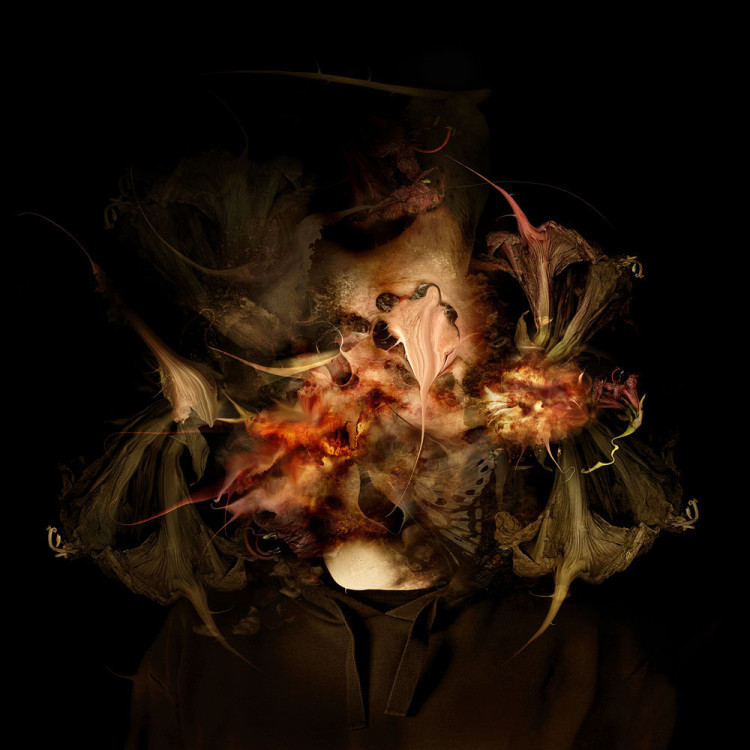
“Ο ΠΑΡΑΔΕΙΣΟΣ ΕΙΝΑΙ Η ΚΑΙΝΟΥΡΓΙΑ ΚΟΛΑΣΗ/ ΘΕΑΤΡΙΚΑ ΚΟΥΣΤΟΥΜΙΑ ΓΙΑ ΠΡΟΣΩΠΑ”
“Paradise is the New Hell- Theatrical Costumes for Faces”
Verfremdungseffekt project FILIPPOS TSITSOPOULOS

“…The circus is a type of art of action with concrete images. Everything in the circus happens in “real”. The dancer is dancing with “real danger” on a real rope, and the tamer with the bear presents only the spectacle of the wild animals tame. To “be real” means that the image is a “precise point” or a “thing”. The face of the actor and his “garment” is an image.
If the actor interprets himself, if he remains an actor, then is a “precise point”. But, if he became equal with the personage who interprets, the image that produces is “mimetic symbol”. The passage between the real time and the theatrical time, the imaginary space to the real one, is possible to described it with an image, using this image like a “precise point”. It s necessary to create a flexible mask, to dress your face and to get a new face at any time, to liberate your senses, although that means to construct a lie from a truth, which is your own face, and with this new “face – lie” to start, by telling the truth”.
Jan Kott. “Shakespeare Our Contemporary”
My aim as an artist is to substitute concepts that belongs to the theatre, traditional theatre, modern theatre applying them to visual arts and observe the effects that these concepts could affect the plasticity of the images, constructing a parallel equivalent of each one of these concepts.
The exhibition is based on a rehearsal of Filippos Tsitsopoulos based on deep autobiographical facts and emotions . Defamiliarization (Verfremdungseffekt, in German used by Brecht, wanted to “distance” or to “alienate” his audience from the characters and the action), is used as element of distancing between the personal facts composed, according to this grammar of rhetorical and authenticating conventions in order to achieve some particular effect on its viewers .
The main subject of the exhibition are fragments on video performance based on the theatrical play Marat Sade of Peter Weiss, who performed first time in Athens, Greece in the National theatre in 1982. The protagonist De Sade was performed by artist s father Giorgos Tsitsopoulos. Director Korais Damatis. Filippos very young by that time, was taking part in the play as watching the rehearsals of his father.
After his father death, Filippos included parts of the dialogues and the monologues , his father did in the play, combine it, with several and strange elements that the artist likes, fragments of other plays, invented texts, actions and poetry among others of Peter Weiss, Beckett, Harold Pinter, Peter Murphy, Filippos Tsitsopoulos, Jannis Kounelis, Jimmie Durham, , John Keats, Tennessee Williams, Giorgos Tsitsopoulos, Juan Carlos Mestre, Dylan Thomas, Peter Handke, Ángel Alcalá Malavé, T. S. Elliot, John Dowland, W. Shakespeare, William Tallis, (Die Räuber) and fragments of the letters of Friedrich Schiller, Maria Rilke….in one monologue-dialogue with himself creating an independent video play and work at a time.
Arise the necessity to push the boundaries beyond the human face create the concept of “dress the face as a costume”, the principal instrument for an actor. In that way Filippos could research better the elements and the visual garment of his images.
A history of portraits- self portraits was created to study the connections between human expressions and the grotesque and charming monstrosity of the inside. The post expressionist portraits answers to the psychological layers of the actors in the Weiss play in the National Theatre giving an “imaginary face costume” to each one of them.
Like the vision in Hell where the psychological layers are meant to be judged, the portraits that starts from the scanning face of the author can be understood like a theatre world- (spectators and actors) where one body is placed inside the other. Like there is “no theatre without spectators”, like there is no “Marat” without “De Sade” . Like “Art” is a “Theatrical play” inside “Life s theatre ” play.

Filippos Tsitsopoulos express himself with the use of his face. Is the same face, digitally and pragmatically tortured and destroyed, funny and grotesque covered with elements. A mask is created to dress up that face. Is forbidden his real face expression.
“To get a new update face at any time, to diversify the senses, I take the aim, although that means, to construct a lie from a truth, which is own face, and with this new “face – lie” start, by telling the truth”.
In the difficult times that we face in Greece, Marat-Sade text in Filippos face acquires a different reflex ion than in Berlin, when first presented the play. The vision of Hell equal to the decadence of the French revolution, the absurdity and the insanity of an Ideal that meant to be a “Paradise of Fraternity, Equality and Justice, is quite similar with the Euro zone countries and the struggling of the “weakers”, Greece, Portugal, Spain. Is a reminder that all of us we belong to a play in a play, when the the rules are always the same. The abuse of the power, the crashing of the weakers and the charity of the wealth and the rich. The reality is somewhere lost in the Markets eyes who here perform the role of the spectators.
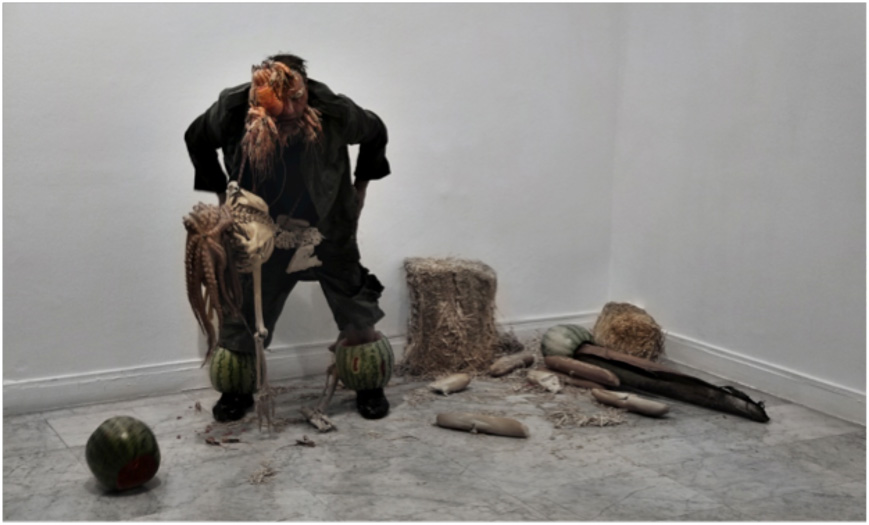
But for Filippos, above all is a memory rehearsal document about his father Giorgos Tsitsopoulos accompanied by a video of the State Museum of Theatre in Greece, of this performance .
In this video installations, drawings and photograph exhibition we have the kitchen of the artist. How his forms can be developed thorough his expressions from the photographed and scanned digital paintings, to drawings and from there to a real mask. An inner exhibition in the exhibition.
The main story of this theatrical play that serves to Filippos as reference, takes scenic place on July 13, 1808, after the French Revolution; the play directed by de Sade within the story takes place during the Revolution, in the middle of 1793, culminating in the assassination of Jean-Paul Marat (which took place on July 13, 1793), then quickly brings the audience up to date (1808). The actors are the inmates of the asylum, and the nurses and supervisors occasionally step in to restore order. The bourgeois director of the hospital, Coulmier, supervises the performance, accompanied by his wife and daughter. He is a supporter of the post-revolutionary government led by Napoleon, in place at the time of the production, and believes the play he has organized to be an endorsement of his patriotic views. His patients, however, have other ideas, and they make a habit of speaking lines he had attempted to suppress, or deviating entirely into personal opinion. Suffice it to say that they, as people who came out of the revolution no better than they went in, are not entirely pleased with the course of events as they fell. The one so called paradise revolution end up in “fucking Hell”.
The infamous Marquis de Sade, the man after whom sadism is named, did indeed direct performances in Charenton with other inmates there, encouraged by Coulmier. De Sade is a main character in the play, conducting many philosophical dialogues with Marat and observing the proceedings with sardonic amusement. He remains detached and cares little for practical politics and the inmates’ talk of right and justice; he simply stands by as an observer and an advocate of his own nihilistic and individualist beliefs.
One of the most powerful scenes of the play is when De Sade is being whipped on his own instructions with lashes,
(in which Filippos substitute the lashes with fishes smashing them in the same way at his back),
and such bold scenes are not alone, nor confined to the predilections of the Marquis himself.
We must add here that De Sade wrote hypothetically this play, so Marat exists as a role in the De Sade imagination. we may agree then that, de Sade has a duality, adopting two characters. One is himself and other is Marat. Both characters, Marat and De Sade are performed by the artist, because after some thoughts about the play, Marat is not “real”, is a “mimetic symbol” as all the possible dialogues that held’s with De Sade.
Marat belongs in De Sade s imagination who wrote this dialogues and compose the play. Play that serves to Peter Weiss, to compose imaginary dialogues of “Marat” with “De Sade” in the “Charenton Asylum” who is the “theatre stage itself” where the play is placed. So, in two words, I sift Marat into De Sade s scenic body.

Ο Φίλιππος Τσιτσόπουλος (γεν. 1967), γιος του ηθοποιού Γιώργου Τσιτσόπουλου, ξεκίνησε τις σπουδές του στην ΑΣΚΤ της Θεσσαλο νίκης και συνέχισε στη Μαδρίτη, όπου το 1996 ολοκλήρωσε το διδακτορικό του. Ζει και εργάζεται στην Ισπανία, και στο Λίβερπουλ, έχει εκθέσει πολλές φορες στην Valencia, τη Σεβίλλη και τη Μαδρίτη, το Βερολίνο, την Ανκόνα και τη Ρώμη, το Βέλγιο, τη Νέα Υόρκη, το Λονδίνο και το Λίβερπουλ, το Μόναχο και άλλες πόλεις. Με παρουσιάσεις όπως , / “Metabolism of forms”- HUNTERIAN Museum Performance, 23 July 2012 LONDON Cur. Σόσιτα Γκουντούνα, / Sacrificio- PELEGRINATIO 2012 Cur. Fernando Castro Flores Valencia, / “Theatricality of Edmund Trauma Berg”- Video performance in two screens TEMPUS ARTI 2012, Flanders Belgium, / EL GABINETE DE CURIOSIDADES DE Mr. BONSAI , Bonsai world theatre project PALM HOUSE, παράλληλο της Liverpool Biennial 2012 , November. Liverpool, / “ASHES PERFORMANCE”, CAM Museum ARTWAR, DOCUMENTA 13 Kassel Performance Department, 13 Location- 2012, /“Feldeinsamkeit”. BONE 14. Festival für Aktionskunsk in Bern. Cur. Norbert Klassen. Bern 2011, / “Just a Laugh, Just a Cry”. Vídeo instalación. FACT. Liverpool 2011,- /“Tonight we love each other”. Performance y vídeo instalación. Festival Dimitria Cur. Θούλη Μισιρλόγλου Θεσσαλονίκη, / Marat-Sade” Performance. Festival Óptica. Casa Encendida. Madrid 2011, / “The Madrigal of the Explosion of the Wise Whale” 2010. Freies Museum. Berlín, / Μουσεία Μπενάκη το 2008 με Cur. Denys Zacharopoulos, Μακεδονικό Μουσείο Μοντέρνας τέχνης, /“The Monoloque of St Whale the Bomber”2009. Casa Encendida. Festival Óptica. /Dolores de Sierra Gallery 2004, 2006, 2010 Madrid, / “Project CRAZE”. Tempus Arti. Cur. Jan Hoet,. Flandes, Bélgium, / “Craze Feldeinsamkeit”. Galería Batagianni.2004, 2005, 2008, 2011 Aθηνα, /“Les Bourgeois de Calais”- Performance. Neue National Galerie. Berlín, / “Jelly and Sugar- Craze”. Círculo de Bellas Artes. Madrid, /“Goya Prophet der Moderne” Alte Nationalgalerie, performance Berlin 2005 και Project του περιοδικού art.es. στην ARCO 2006. Madrid, / ARCO Madrid 1996, 2002,2006, 2009, 2010 ΑΤΜ Gallery./ “Cheap like wow”. UAMO 08- 09-12. Cur. Johannes Blank. Munich./ “Digital Media 08”,09,10. La Nau. Valencia, Cur Toni Calderon /CIRCA art fair 07- 08 – 09. Galería Altamira. Puerto Rico, / Liverpool Biennial. A Foundation. Liverpool 2004, 2010 και άλλες πολλές.

Batagianni gallery
ΔΕΛΤΙΟ ΤΥΠΟY
Filippos Tsitsopoulos
“Paradise is the New Hell- Theatrical Costumes for Faces”
Η κυρίαρχη σκέψη που καθορίζει τα έργα του Φίλιππου Τσιτσόπουλου είναι η αντικατάσταση θεωρητικών εννοιών -που ανήκουν στο σύγχρονο και κλασσικό θέατρο ρεπερτορίου- με την εφαρμογή τους στις εικαστικές τέχνες και σε ποιο βαθμό αυτές οι έννοιες θα μπορούσαν να επηρεάσουν την πλαστικότητα των εικόνων και την κατασκευή ενός παράλληλου ισοδύναμου σε κάθε μία από αυτές.
Το κύριο θέμα της έκθεσης “Paradise is the New Hell- Theatrical Costumes for Faces” είναι “θραύσματα”/ αποσπάσματα από βίντεο που ο ίδιος ο καλλιτέχνης δημιουργεί και στα οποία συμμετέχει παίζοντας σε ρόλο ηθοποιού. Τα αποσπάσματα αυτά είναι όλα βασισμένα στο θεατρικό έργο Marat Sade του Peter Weiss, ένα έργο με μία ιδιαίτερη σημασία για τον καλλιτέχνη σε βιωματικό αλλά και θεωρητικό επίπεδο.
Ο Φίλιππος Τσιτσόπουλος εκφράζεται μέσω της χρήσης του προσώπου του. Είναι το ίδιο πρόσωπο ψηφιακά και πραγματικά βασανισμένο, κατεστραμμένο, αστείο και τραγελαφικό, καλυμμένο με “Φύση” ή με πίξελ, με μία μάσκα ή πολλές μάσκες που δημιουργήθηκαν για να ντύσουν αυτό το πρόσωπο και που αποτελούν ένα θεατρικό κουστούμι για κάθε πρόσωπο/προσω-ποιον. Άλλωστε είναι απαγορευμένη ρητά η ένδειξη της πραγματικής έκφρασης των αληθινών συναισθημάτων στο πρόσωπο του καλλιτέχνη. Τα πάντα πρέπει να αποτελούν “μιμητικό σύμβολο” του εαυτού του ή «προσποιητή αλήθεια».
Εγκαίνια: Πέμπτη 21 Μαρτίου 2013 20.00-23.00
Διάρκεια έκθεσης: εως 27 Απριλίου 2013
Ώρες λειτουργίας: Τρίτη – Παρασκευή 11.00-14.00 / 18.00 – 21.00 μ.μ. – Σάββατο: 11.00 – 15.00 μ.μ.
Ηρακλείτου 3 Κολωνάκι 10673 Αθήνα/ τηλ. 210 3618188/ info@batagiannigallery.com / www.batagiannigallery.com


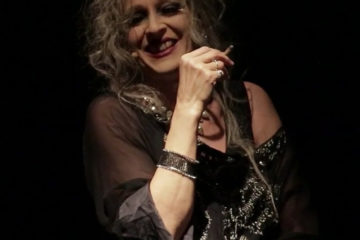
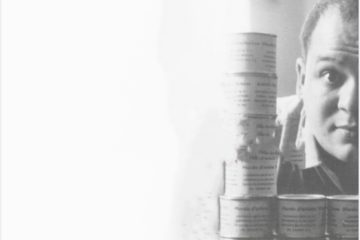
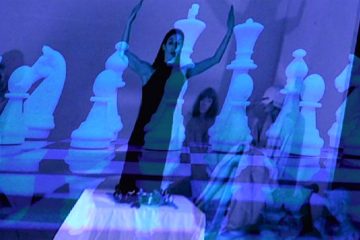
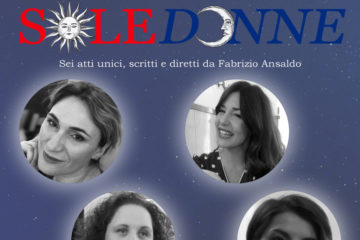

No Comment